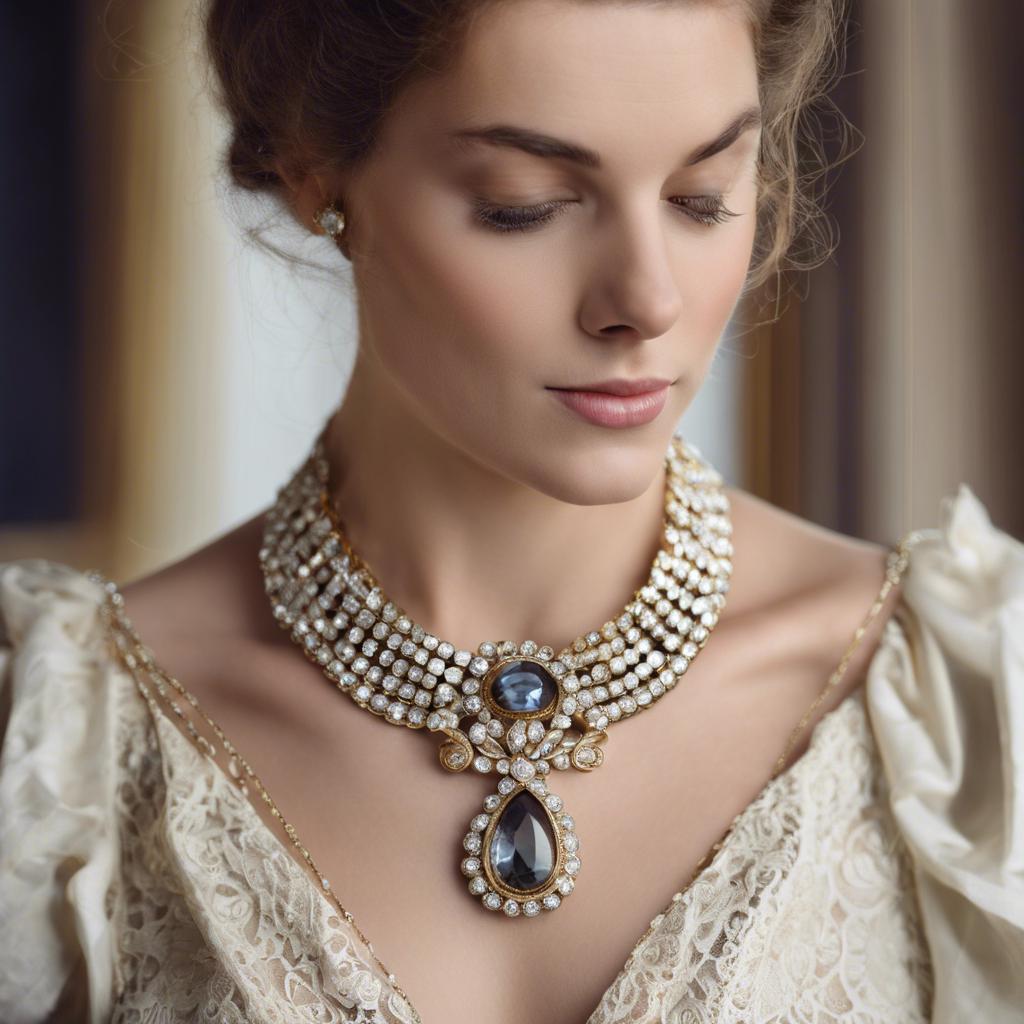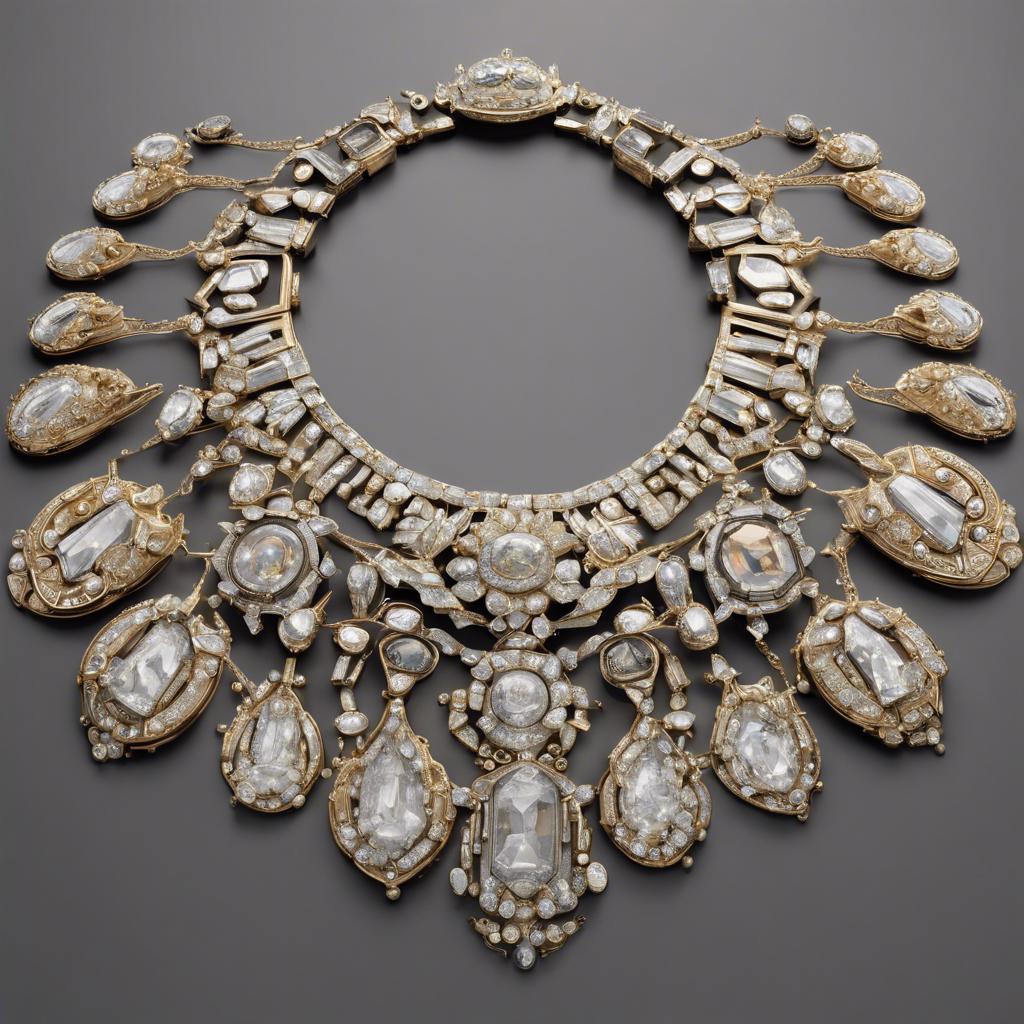The regency era, spanning from 1811 to 1820, marked a time of elegance and sophistication in British history. Among the many exquisite adornments favored during this period, none captured the grace and opulence of the era quite like the regency era necklace. These necklaces were a symbol of wealth, status, and fashion-forward taste, and their intricate designs and lavish materials continue to mesmerize admirers to this day. Join us as we explore the history and significance of the regency era necklace, and uncover the secrets behind these timeless treasures.
Step Into the World of Cheryl Bolen
Dive into the enchanting stories of love, intrigue, and elegance set in the Regency Era. Cheryl Bolen's novels offer timeless romance and captivating tales that will leave you wanting more.
Explore Cheryl Bolen's Books Now
Regency Era Necklace: A Symbol of Elegance and Sophistication
The Regency Era Necklace is a true symbol of elegance and sophistication that embodies the fashion and style of the early 19th century. During the Regency period, ornate necklaces were worn by both men and women as a statement of wealth and status. These exquisite pieces were often made with precious metals such as gold and silver, adorned with gemstones like diamonds, pearls, and emeralds, and featured intricate designs inspired by nature and classic motifs.
One of the most iconic styles of Regency era necklaces is the choker, a short necklace that sits close to the neck and emphasizes the wearer’s neckline. Chokers were popular among high society women during this period, as they were seen as a symbol of femininity and grace. These necklaces were often embellished with delicate filigree work, intricate engraving, and dangling pendants, adding a touch of glamour to any ensemble.
Wearing a Regency Era Necklace today is a way to connect with the elegance and refinement of the past while adding a touch of vintage flair to your wardrobe. Whether you choose a replica piece inspired by the styles of the Regency era or opt for a modern interpretation of this classic accessory, a Regency era necklace is sure to make a statement and elevate your look to a new level of sophistication.
Exploring the Intricate Designs and Materials Used in Regency Era Necklaces
During the Regency era, necklaces were crafted with the utmost attention to detail, showcasing intricate designs that reflected the elegance and sophistication of the period. These necklaces were often made with luxurious materials such as pearls, gemstones, and gold, creating pieces that were not only fashionable but also a symbol of status and wealth.
The designs of Regency era necklaces were inspired by the fashion trends of the time, with popular motifs including delicate floral patterns, intricate scrollwork, and romantic symbols such as hearts and flowers. These designs were often embellished with gemstones such as diamonds, emeralds, and sapphires, adding a touch of sparkle and color to the pieces.
Materials such as pearls were highly coveted during the Regency era, with necklaces featuring strands of lustrous pearls that were worn as a symbol of refinement and femininity. These pearls were often accompanied by other gemstones, creating a harmonious blend of colors and textures that made Regency era necklaces truly special and unique.
Tips for Authenticating and Caring for Your Regency Era Necklace
When it comes to authenticating and caring for your Regency Era necklace, there are a few key tips to keep in mind. First and foremost, it’s essential to research the history and provenance of your necklace. Look for any markings or signatures that can help identify its origin and authenticity.
Additionally, proper care and maintenance are crucial to preserving the beauty and value of your Regency Era necklace. To clean the necklace, gently wipe it with a soft cloth to remove any dirt or debris. Avoid using harsh chemicals or abrasive materials that can damage the delicate design.
For storing your necklace, consider using a velvet-lined jewelry box to prevent scratches and tangles. It’s also important to avoid exposing the necklace to direct sunlight or extreme temperatures, as this can cause fading and deterioration. By following these tips, you can ensure that your Regency Era necklace remains a cherished heirloom for years to come.
Top Recommendations for Incorporating a Regency Era Necklace into Your Modern Wardrobe
When it comes to adding a touch of elegance and history to your modern wardrobe, incorporating a regency era necklace is a perfect choice. These timeless pieces from the early 19th century exude sophistication and charm, making them a versatile accessory that can elevate any outfit. Here are some top recommendations for seamlessly integrating a regency era necklace into your contemporary style:
**Pair with a Classic White Blouse and High-Waisted Trousers**
For a chic and refined look, style your regency era necklace with a classic white blouse and high-waisted trousers. This combination will create a sophisticated silhouette that highlights the intricate design and beauty of the necklace. Add a pair of heels and a structured blazer to complete the ensemble, perfect for a day at the office or a night out on the town.
Closing Remarks
the regency era necklace is a stunning piece of jewelry that holds deep historical significance. From its intricate design to its elegant appearance, these necklaces are a true reflection of the romantic and refined style of the early 19th century. As we continue to appreciate and admire the craftsmanship of the past, let us remember the beauty and grace of the regency era necklace as a timeless symbol of sophistication and class.


